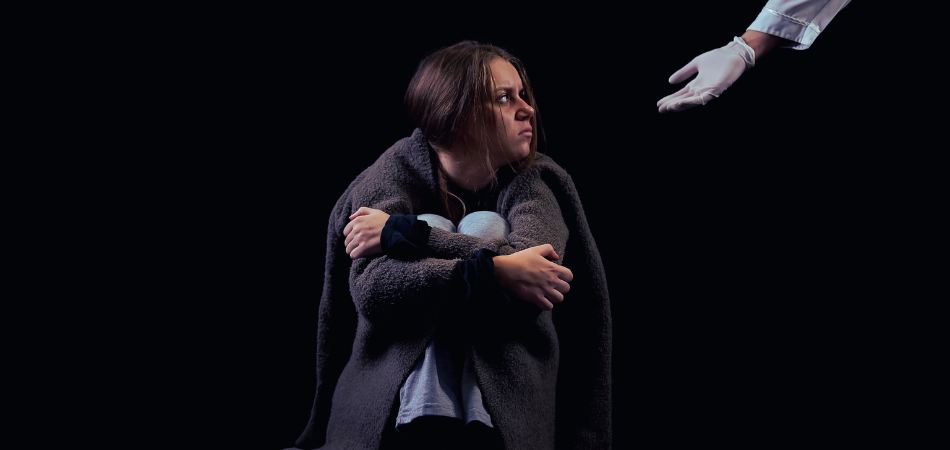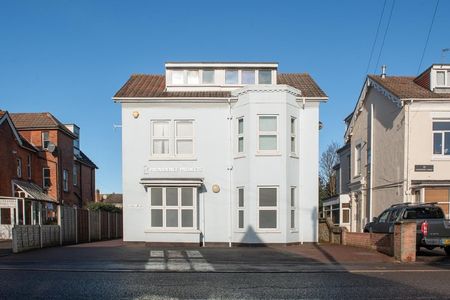
Written by:

Medically Reviewed by:
Last Updated:
September 5th, 2025
Secondary Care Programme
Building a Stronger Foundation for Your Lasting Recovery
Completing your initial addiction rehab marks a monumental milestone in your recovery, a testament to your dedication, strength, and readiness to embrace a substance-free life. Yet, finishing residential treatment is not the end of the road. It’s the beginning of a critical phase where the risk of relapse can be high without the right support. That’s why secondary care isn’t just an optional extra; it’s an essential step to ensure your recovery endures.

Understanding Secondary Care
Also known as extended care or step-down support, secondary care serves as the transitional phase between the intensive structure of inpatient rehab and the freedom (and challenges) of daily living.
During your primary care, you detoxified, developed coping skills, increased your self-awareness, and learned how to avoid relapse triggers. Secondary care takes these fundamentals and helps you put them into action in a semi-supported setting. It’s designed to ease you into real-world situations while providing professional help to adjust and strengthen your recovery strategies.
This stage is less restrictive than full residential treatment, granting you more autonomy while maintaining a safety net of expert guidance. Secondary care focuses on boosting your confidence, enhancing your resilience, and supporting your gradual return to independent living, all without the pressure of going it alone.
Key Components of Secondary Care
- Relapse Prevention: Strengthening your ability to identify and manage triggers early to avoid setbacks.
- Everyday Life Skills: From budgeting to meal planning, developing sustainable routines that promote ongoing recovery.
- Continued Therapy and Emotional Support: Access to individual and group counselling to navigate new challenges as they emerge.
The Importance of Secondary Care
Addiction leaves a deep mark on every aspect of life, from physical health decline to challenges in mental and emotional wellbeing. While primary care offers the crucial structure and support to break free from addiction’s grip, the early stages of recovery are often delicate and vulnerable. Even after sustained abstinence, old triggers, unresolved feelings, and everyday pressures can quickly become overwhelming.
For many, the shift from the tightly controlled environment of residential rehab to full independence can feel like a sudden drop, a leap without a safety net. This abrupt change often leaves individuals, no matter how committed, feeling exposed and ill-prepared to handle the realities of daily life.
Secondary care is designed to bridge this gap. It provides a measured, supportive transition that allows you to maintain the progress you’ve achieved in primary care while adapting to independence at a manageable pace.
In practical terms, secondary care
- Minimises relapse risk by offering ongoing access to professional support, counselling, and peer networks.
- Enhances coping skills by allowing you to practice them in everyday settings with expert feedback to fine-tune your responses.
- Builds confidence in handling life’s demands, whether relationships, responsibilities, or stress, without falling back into old patterns.
- Smooths the transition into independent living by replacing abrupt change with gradual, supported progress.
Far from being an optional extra, secondary care acts as a vital buffer. It strengthens your hard-won recovery, prepares you to face future challenges with resilience, and provides the stability necessary for lifelong sobriety.
Who Benefits from Secondary Care?
Secondary care is tailored for individuals who have completed their initial rehab programme successfully and are prepared to move forward, but still appreciate the importance of ongoing professional support and structured guidance.
This stage is especially suitable for those who
- Are dedicated to maintaining their recovery over the long haul and recognise that healing doesn’t stop after rehab ends.
- Seek a balanced, sober living setting that combines personal freedom with the comfort of a supportive framework.
- Require extra time to build vital life skills, repair relationships, or gear up for returning to work or education.
- Are facing the often tough transition back to everyday life and prefer a gradual, manageable approach rather than an abrupt change.
Secondary care also plays a vital role for those who may have previously tried to re-enter daily life on their own but found it overwhelming or met with obstacles. It provides a compassionate, structured space to reinforce recovery, rebuild inner strength, and restore confidence in living a healthy, rewarding life.
Secondary Care at Providence Projects
Providence Projects in Bournemouth, a UKAT facility, specialises in extended care and relapse prevention. Our secondary care programme here fills the crucial gap between primary rehab and independent recovery by offering a blend of structured support, expert guidance, and a strong sense of community, creating the ideal environment for sustainable success.
At Providence Projects, clients experience a balanced approach that merges therapeutic focus with real-world independence, helping to solidify recovery progress, enhance coping abilities, and build the confidence needed for future challenges.
What Does Secondary Care Look Like at Providence Projects?
Intensive Daily Therapy
Our secondary care programme features a comprehensive and immersive daily therapy schedule, far beyond what typical outpatient or step-down options provide. This framework allows clients the time and focus needed to address complex issues deeply and develop practical skills essential for lasting recovery.
Therapy here is active and engaging; there’s no room for passivity. Every individual is encouraged to participate fully, understanding that sustained recovery requires dedication and effort.
Key areas covered in therapy include
- Building Self-Esteem: Cultivating confidence and a healthy self-image to resist relapse.
- Healthy Relationships: Learning boundaries, communication skills, and rebuilding trust.
- Anxiety and Stress Management: Equipping clients with tools to identify and handle emotional triggers.
- Relapse Prevention: Spotting early warning signs and crafting personalised, actionable strategies.
- The 12-Step Programme: Concentrating on the foundational first three steps to embed recovery principles.
- Same-Sex Group Therapy: Offered biweekly (depending on group size) to provide a secure space for gender-specific concerns.
Workshops and take-home exercises reinforce these lessons, encouraging continuous reflection and real-life application beyond therapy hours.
A Close-Knit Recovery Community
Recovery thrives on connection. Providence Projects fosters a supportive community where peer accountability and encouragement play a vital role. Clients move around the facility in groups of three, our “buddy system”, ensuring no one faces their challenges alone. This network builds motivation and mutual support, strengthening commitment to recovery.
Regular drug and alcohol testing maintains a clean, sober environment, protecting everyone’s progress and reinforcing responsibility.
Tailored Relapse Prevention Plans
Central to our secondary care is creating a personalised relapse prevention plan, a detailed, stepwise guide to maintaining sobriety well beyond treatment. Working closely with professionals, clients will:
- Identify and understand their unique triggers.
- Develop and sustain a stable, structured daily routine.
- Build and maintain a robust sober support network.
- Create contingency strategies for cravings or setbacks.
This proactive approach transforms uncertainty into practical confidence, equipping clients with tools to stay the course.
Independent Living with Support
A key feature of UKAT’s secondary care is the separation between accommodation and therapy spaces. Clients live in comfortable, supportive housing near but apart from the therapy centre itself, fostering independence and personal accountability, critical for re-entering everyday life.
Managing their own meals, budgeting, and daily routines helps clients hone essential life skills. This thoughtful balance of freedom and structure nurtures resilience and confidence, turning recovery into a lived reality rather than just clinical treatment.
Holistic Activities for Wellbeing
Recovery encompasses more than just therapy sessions. To support physical health, emotional balance, and social connection, clients engage in a range of enriching activities, such as:
- Beach outings and coastal walks, promoting fitness and connection with nature.
- Team sports like volleyball, fostering camaraderie and teamwork.
- Weekly yoga sessions to enhance mindfulness, flexibility, and mental clarity.
These activities complement therapy, promoting a holistic approach to healing mind, body, and spirit.
This thoughtfully designed blend of guidance and independence equips you not just to stay sober, but to flourish in the crucial next step of their journey: sober living. As a seamless follow-on from secondary care, sober living provides a supportive, peer-led setting where individuals strengthen their self-reliance and resilience, all within a community dedicated to long-term recovery.
Frequently asked questions
At the heart of secondary care lies a strong, encouraging community. Recovery can feel isolating, but Providence Projects cultivates an environment where respect, shared commitment, and peer support form the foundation. This network of encouragement isn’t just feel-good fluff; it’s proven to increase accountability and sustain motivation when the initial momentum from rehab might otherwise begin to fade.
Clients also benefit from access to seasoned addiction specialists who bring a wealth of knowledge and practical experience to their ongoing recovery. These professionals offer more than just treatment; they provide mentorship, guidance, and encouragement, all crucial ingredients in navigating the complexities of life post-rehab.
The setting itself is designed to foster safety and growth. Within a secure, structured environment, clients can rebuild their lives away from triggers and old habits, while developing the personal discipline and resilience necessary to succeed in the outside world.
Moreover, the therapeutic methods employed are firmly rooted in evidence-based practices, ensuring that the tools and techniques provided are not just theoretically sound but practically effective. You will learn real-world skills, coping mechanisms, relapse prevention strategies, and emotional regulation that equip you to handle stressors and challenges long after leaving the programme.
In essence, secondary care with UKAT isn’t just about maintaining sobriety; it’s about building a new foundation for life. It’s about emerging from treatment not only sober but empowered, confident, and resilient enough to thrive independently. Because at the end of the day, recovery isn’t just about surviving, it’s about living well.
Contact our admissions team now to learn how this crucial stage can help you transform early success into lifelong stability.





